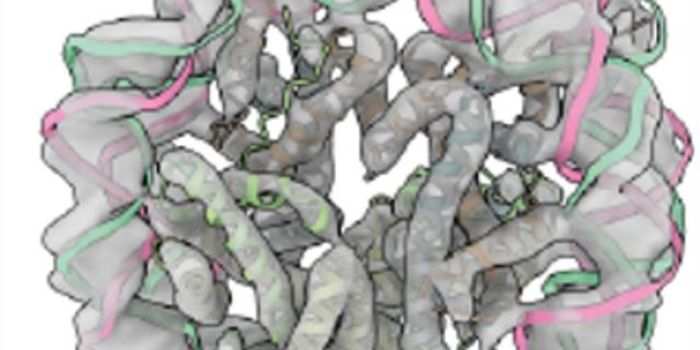Breast Cancer Drug Increases Survival for Prostate Cancer Patients
A clinical trial has shown that a drug used in the treatment of ovarian and breast cancer is better at treating advanced prostate cancer in some men than targeted hormone therapeutics that are currently in use. The study, called the PROfound trial (described in the video), compared the efficacy of olaparib, which is approved for use in breast cancer patients with BRCA mutations, with the drugs abiraterone and enzalutamide, which are hormone treatments used to target prostate cancer tumors carrying dysfunctional DNA repair genes. Olaparib delayed the progression of prostate cancer by about 66 percent in men carrying these faulty genes.
"Our clinical trial shows that olaparib, a pill without the side effects of chemotherapy, is able to target an Achilles' heel in cancer cells. Olaparib is able to kill cancer cells with faulty DNA repair genes while sparing normal cells," explained the co-leader of the trial, Johann de Bono, Regius Professor of Cancer Research at The Institute of Cancer Research, London.
Men with prostate cancer who had received hormone therapy to treat tumors carrying one of fifteen dysfunctional DNA repair genes in their cells were selected for this study. A gene called ATM, and the well-known genes associated with breast cancer BRCA1 and BRCA2 were some of those genes. For patients with genetic changes in those genes, the amount of time they had before their cancer progressed was lengthened by olaparib treatment; their profession-free survival time was extended from 3.6 months to 7.4 months. Olaparib treatment extended the median overall survival time to 18.5 months from 15 months with hormonal treatment.
This work confirms a study from earlier this year that determined olaparib could double progression-free survival in men with BRCA alterations in their prostate tumor cells.
"Our findings also have wider implications in showing that prostate cancer, like many other cancer types, is really a range of sub-types of disease identifiable by their different arrays of genetic faults. It's essential that we become smarter in the way we treat prostate cancer so that every man gets the treatment that will be of greatest benefit for them," added de Bono.
More follow-up will be needed for these patients to prove that olaparib is a better drug, the researchers noted. The drug also had higher rates of adverse impacts compared to the hormone therapies. About 8.5 percent of patients cannot tolerate the abiraterone or enzalutamide, while 16.4 percent of patients had to stop taking olaparib. The olaparib treatment also goes on for about twice as long.
This study has shown that there are subtypes of prostate cancer, just as there are with lung and breast cancer. It also demonstrates that assessing tumor cell genomes can provide important information that can help determine which treatment is best for a patient.
"This study is a powerful demonstration of the potential of precision medicine to transform the landscape for patients with the commonest of male cancers. I hope that within the next couple of years, olaparib will become the first precision medicine to become available as a standard treatment for men with prostate cancer," said de Bono.
Learn more about BRCA in different types of tumors from the video.
Sources: AAAS/Eurekalert! via Institute of Cancer Research









